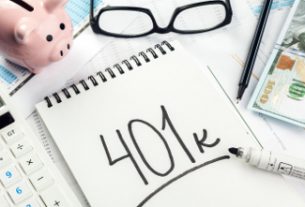After last night’s Democratic primaries, things aren’t looking so hot for Bernie Sanders, once the presumptive nominee for the Democratic Presidential nomination. Joe Biden currently leads Sanders in the delegate race, about 860 to 710. That’s not an insurmountable lead, but the change in momentum that occurred after Super Tuesday is looking to favor Biden and not Sanders.
What will really determine the direction of the campaign is the result of next Tuesday’s primaries. 577 delegates are up for grabs that night, and it features potential battleground states such as Florida and Ohio. While the April 28 primary features more delegates, next Tuesday could set the direction for the next month, or perhaps even for the entire campaign.
If Sanders is able to win convincingly next Tuesday, and eat into Biden’s lead, it will be a sign of strength for his campaign, and will mean that the nomination process will likely be neck and neck all the way till the convention in July. But if Biden pulls ahead, it will mean Bernie has a tough row to hoe. April 28 will still likely be the final date that determines who comes out on top as the eventual nominee, but the overall direction may have already been decided by then.
While the mainstream media is treating Biden as a more mainstream candidate, there’s no guarantee that his economic and financial agenda would be much different than that of Sanders. For one thing, whoever becomes President after the 2020 elections will still have to work with Congress. While Bernie may be a socialist, the reality of working with a split Congress would mean that he wouldn’t see his every wish come to fruition.
Even if Democrats were to take both houses of Congress after 2020, Bernie’s most radical ideas wouldn’t gain traction in the Senate, which is always much more staid than the House. And even in the House, the progressive faction isn’t in control. They can demand as much as they want, but Speaker Pelosi wouldn’t allow the Bernie supporters in her caucus to run wild.
That means that a Biden Presidency and a Sanders Presidency would look largely similar in their effects on the economy. But those effects wouldn’t necessarily be good. Higher taxes are all but guaranteed, and even taxes targeting rich individuals or profitable businesses would trickle down to ordinary Americans.
Given the reality that we’re already facing an economic recession and bursting stock market bubble, and a coronavirus pandemic, adding more taxes and regulations to that would be a triple whammy to the economy. That’s giving investors a great deal of worry about the future of the economy and the future health of stock markets.
Many of those investors are turning to gold, trusting gold’s time-tested ability to protect assets against financial downturns. They’re the lucky ones, as no matter who wins in November or how badly markets continue to lose value, they’ll be protected. But those who continue to place their trust in markets, who will keep riding stock markets down as they decline, will wish that they had invested in gold when they had the chance.
This article was originally posted on Goldco.




